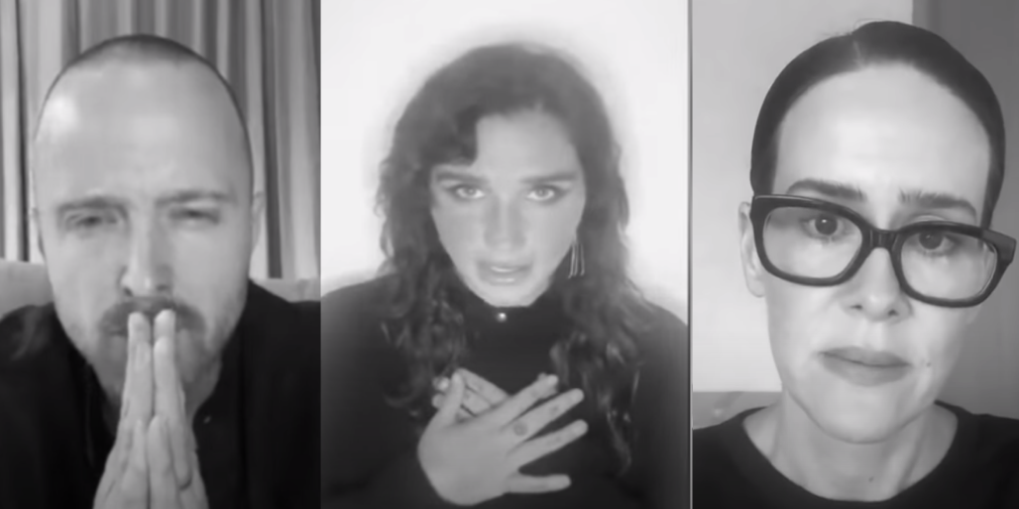As Orwell saw, politics is a battle of language, not least because most people think reflexively and not deeply about public policy.
A Tsunami of Mea Culpas
The message from two weeks of protests across the United States and the world is not that George Floyd was killed by a racist Minneapolis cop. Rather, it is that Floyd was killed by a racist society.
Over the last few days, I have received numerous emails from institutions and organizations feeling compelled to issue statements on the George Floyd killing and the ongoing protests. I have an email from Strava, an app that tracks personal athletic endeavors, titled “we must do better, and we will” and stating that “we know our practices have bias because we haven’t designed them to make sure they don’t.” The Institute for Policy Integrity and NYU Law School declares: “[W]e stand with the Black community in the face of unconscionable racially motivated violence, [and] we understand that such violence is aggravated by retrograde, prejudiced policies.” The Tufts University Alumni Association says the protests “are the result of deep-seated racism and injustice that exists within our society.” Rachel Kyte, dean of The Fletcher School of Law and Diplomacy calls “for an end to the illegal measures taken to prevent people from gathering and protesting peacefully and to the police aggression that targets Black citizens rather than protect them.” The executive council of Lewis & Clark College, from which I am retired, declares that mere expressions of support for the protests “runs the risk of removing responsibility from the majority and requiring the work be done by communities of color.” Society, not the cop, is responsible.
I have also heard from Cape Eleuthera Island School, the Sabin Center for Climate Change Law, Uber CEO Dara Khosrowshahi, The Explorers Club, Northeastern University president Joseph E. Aoun, the Rocky Mountain Mineral Law Foundation, the Oregon Historical Society, and American Bar Association president Judy Perry Martinez, all declaring that they must do better. With the exception of Martinez, none of my correspondents mention, let alone condemn, the riots and looting.
No one can seriously doubt that racism is a reality in American society and that there are racist cops. There are also racist teachers, librarians, auto mechanics, park rangers, lawyers, and even judges. Until now, most cops and most of all the others have believed themselves not to be racist. But the concept of systemic racism teaches that all of those people (at least the white ones) who think they are not racist have been deceiving themselves—racism is built into the irremediable culture of which they (I should say we) are a part. That is the message of the New York Times’ 1619 Project soon to be taught in schools across the country, notwithstanding its many historical inaccuracies. It is also the message in the widely viewed #ITakeResponsibility apologia by several Hollywood celebrities. The tsunami of mea culpas sweeping the nation from every institution, business, and organization is a collective confession of guilt: Yes, we all are racists and we intend to do whatever we can to change.
But the problem is we cannot change. That is the core message of systemic racism theory. Like Christopher Columbus and Robert E. Lee, we will carry this defect to our graves, as will our children and their children. We can acknowledge our nation’s racist past and tear down old monuments celebrating that past, but we cannot change who we are. We are doomed to our white privilege and to living in a society divided by race.
The achievement of diversity has become an objective founded in the racist belief that races are innately different.
If so, everything that follows is tainted by systemic racism and white privilege and will be discounted accordingly. In our brave new world, I should join those who have flooded my inbox in confessing my sins and not question the premise on which my and their alleged guilt is founded or suggest where we might be on the wrong track.
All the expressions of noble intention filling my inbox will come to nothing unless we get past our obsession with race and abandon the well-intentioned but divisive and counterproductive policies that prevent us from seeing each other as people rather than members of racial groups.
It is important to acknowledge all of our history—the good and the bad. It is important to condemn racists and racism. It is important to have conversations about race and how it manifests in the administration of justice as well as in our daily lives. But doing all of that talking, finger-pointing, and apologizing will not advance the cause of racial justice unless we also stop insisting that we are unalterably different because of our races.
There was a time when America aspired to color blind justice. Martin Luther King, Jr. famously looked forward to the day when his children and all children would be judged by their character rather than the color of their skin. But appeals to color-blindness are now dismissed as just another cover for systemic racism. We are told we must be color-conscious.
Beginning in primary school, our kids are reminded of their differences, not their common humanity. Our colleges and universities are effectively segregated by race, both socially and academically. There are Black, Asian, Native American, Hispanic, and Pacific Islander curricula and student organizations. No subject matter from physics to computer science is complete without attention to race. Everywhere, from the US census to every business and organization, we count, classify, and report on racial proportions. We are identified, and increasingly identify ourselves, not as people with a shared humanity, not as citizens of a nation or community, but as members of racial groups.
Somewhere in the mission statement of every institution and business I have heard from this week is almost certainly a commitment to inclusion and diversity. Most have policies and a staff devoted to assuring they meet that commitment. Because the absence of racial diversity is often evidence of exclusion and discrimination, instituting policies to achieve diversity can help remedy discrimination. But the achievement of racial diversity has become more than a matter of prima facie nondiscrimination. It has become an objective founded in the racist belief that different races are innately different and therefore will bring different voices and experiences to the pursuit of an organization’s mission. Black individuals will express the Black perspective; White individuals will express the White perspective. Neither are influenced by the other. This is the presumption that led Joe Biden to say that Black people who would consider voting for Donald Trump are not Black.
Integral to most forms of racism is a belief that people of a given race share characteristics, opinions, and ambitions that distinguish them from people of other races, usually leading to judgments of inferiority or superiority. Condemnations of racism, along with promises of its eradication, have filled my inbox this week. The remedies proposed call for the recognition of racial differences and the institution of policies based on those alleged differences. But racial discrimination will not be eradicated by discriminating on the basis of race. If my many communicants and the broader society are to eradicate racism we must stop insisting and teaching our children to believe that people of different races are different. We must judge each other by our character and not the color of our skin.



